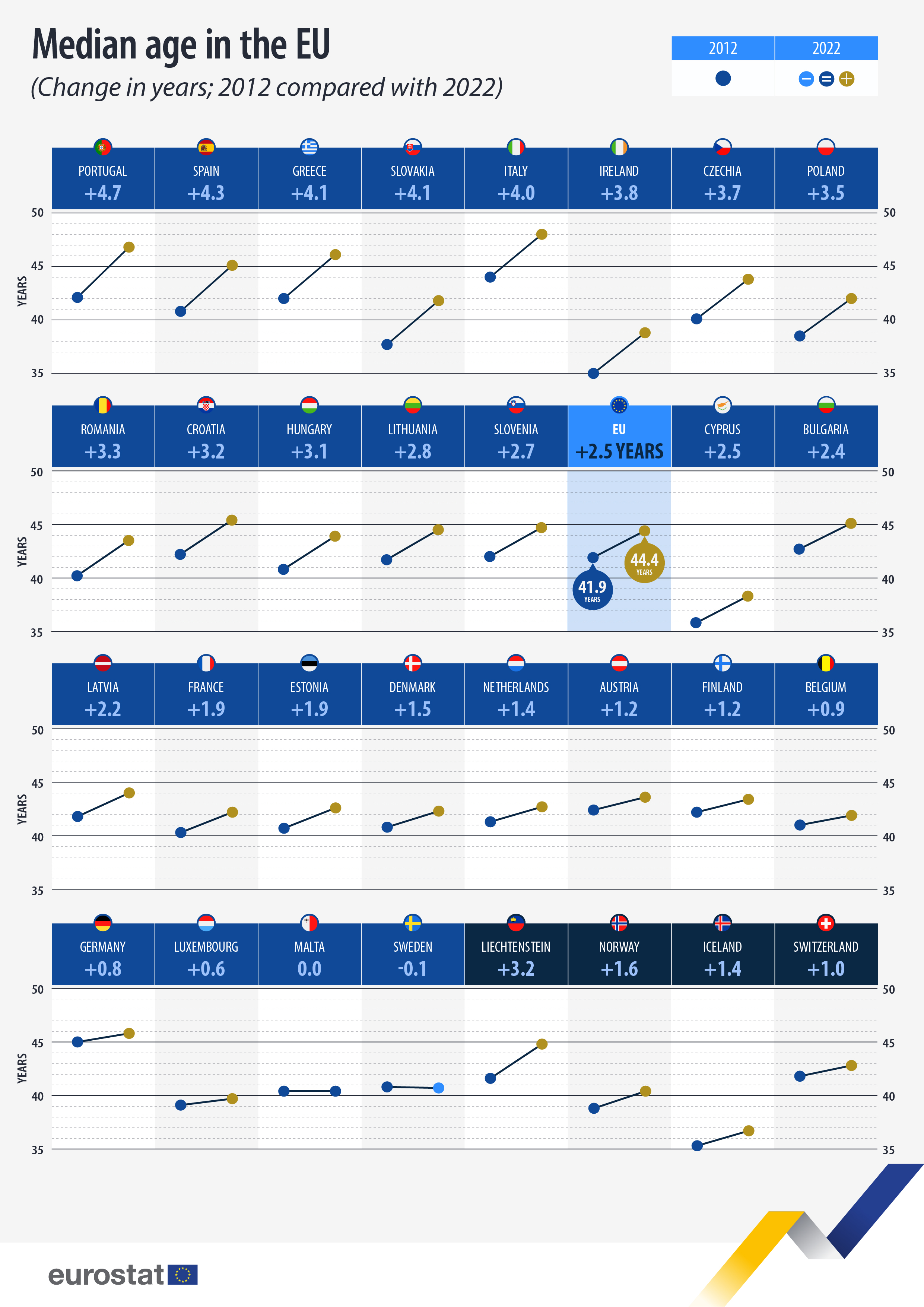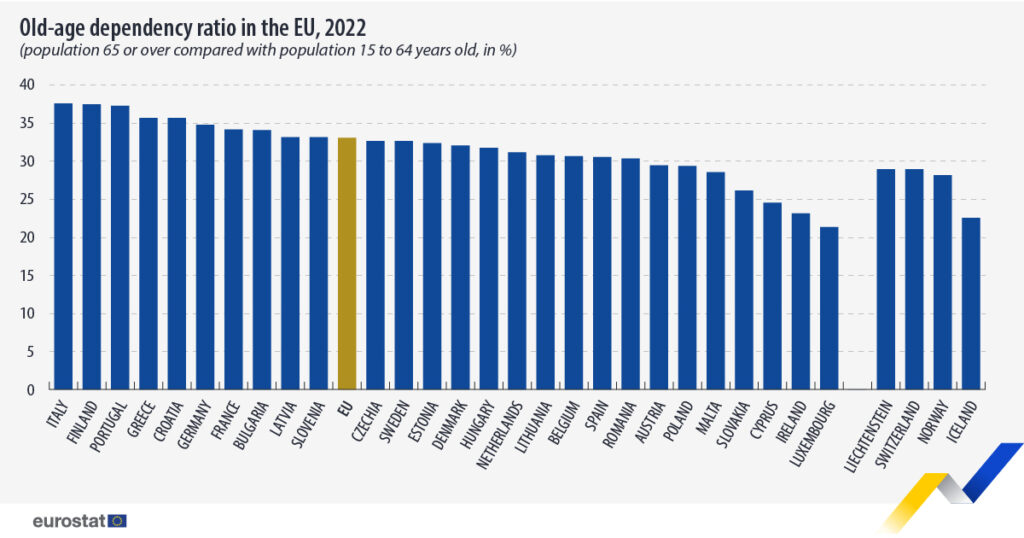Young at heart: Luxembourg ranked as the EU’s third youngest country
20 October 2023

Youthful Luxembourg
According to Eurostat, as of 1 January 2022, the median age of the EU’s population reached 44.4 years, 0.3 years more than in 2021. Luxembourg’s population, with an average age of 39.7, is one of the youngest in the EU. This is another strong indicator of Luxembourg’s attractiveness to working aged people.
A Eurostat study has found that for 2022, the median age in the EU ranged from 38.3 years in Cyprus, 38.8 in Ireland and 39.7 in Luxembourg to 48.0 years in Italy, 46.8 in Portugal and 46.1 in Greece. Within the same study, Eurostat found that Luxembourg boasts the second lowest percentage of residents aged over 65 in the entire EU, accounting for only 14.5% of its population, significantly below the EU average of 20.6%.
In the decade from 2012 to 2022, Luxembourg’s median age only increased by 0.6 years, while the average increase around the EU was 2.5 years. This is due in part to the continued influx of young immigrants of working age.
Luxembourg’s prominent status as a financial hub, coupled with its thriving job market, generous salaries, diversity/multilingualism and quality of life, remains attractive for immigrants from both Europe and around the world for those seeking career prospects in a family-friendly environment.

Luxembourg, a magnet for well-educated young labour force
Luxembourg’s population demographic has been strengthened due to the influx of youthful immigrants, a significant portion of whom are in the working-age population. Indeed, the nation consistently attracts a diverse, educated labour force to meet the demands in skilled sectors such as research, finance, IT, healthcare, consulting, as well as within EU and international organisations.
This gave rise to Luxembourg having the highest proportion of young adults in the EU with a diploma from a university or higher education institution.
Luxembourg has Europe’s lowest old-age dependency ratio
The youthfulness of Luxembourg’s population has led the country to have the EU´s lowest old-age dependency ratio, which is defined as the ratio of the number of elderly people (aged 65 years and over) compared to the number of people of working age (15-64 years).
A low dependency ratio is very desirable as it signifies a higher proportion of working-age adults capable of providing support for both the young and the elderly within the population. Consequently, this brings benefits to Luxembourg’s healthcare and pension system.
Discover the profiles of young researchers who chose Luxembourg
The series “In Conversation with our Young Researchers” showcases many stories of international researchers who chose Luxembourg to enter or pursue their research careers.
Among the many assets they mention, the researchers highlight Research Luxembourg’s excellent infrastructure, the many funding opportunities and the good work-life balance.













